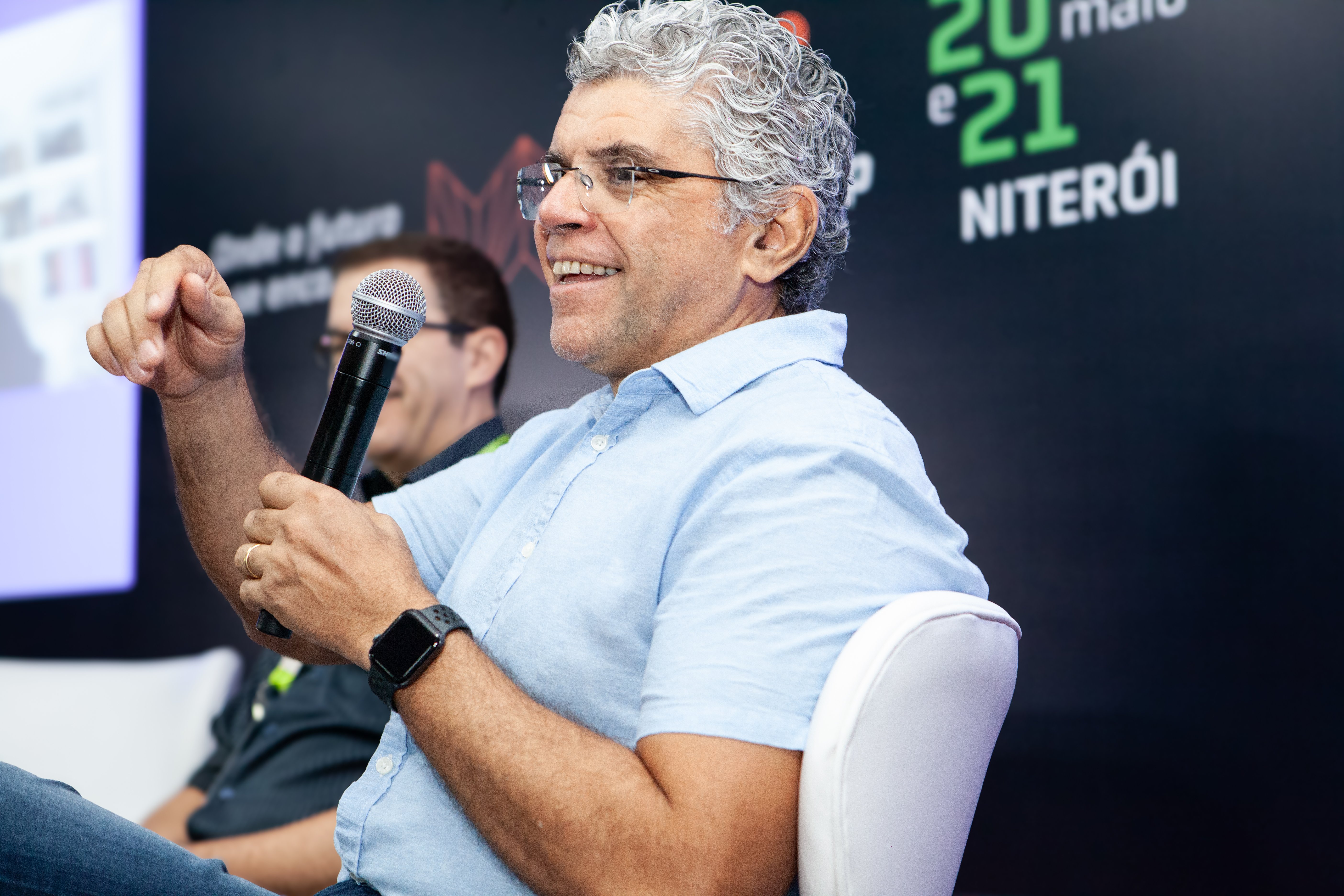"If we can make AI relevant to the Brazilian context, it will already be a great step forward," says Altigran Soares at WRNP
In an interview during the event, the professor at the Federal University of Amazonas (UFAM) spoke about Brazil's potential to adopt its own standard for technology
The panel “Challenge to build AI Infrastructure for teaching and research” opened the program for the second day of the 25th RNP Workshop (WRNP). On the main stage, Lisandro Granville, deputy director of research and innovation at RNP, Altigran Soares, professor at the Federal University of Amazonas (UFAM), Fabio Borges, director of the National Laboratory for Scientific Computing (LNCC), and Eliana Emediato, general coordinator of digital transformation at the Ministry of Science, Technology and Innovation (MCTI), discussed how Brazil can insert itself in a more structured way in the context of great advances in Artificial Intelligence.
In his second participation in WRNP, Soares, one of the leading AI scholars in Brazil, spoke about the importance and challenges of adapting this technology to the national scenario.
Check out the interview below.
RNP: The growth of artificial intelligence (AI) has been attracting attention, especially because of generative AI. How do you see this movement?
Altigran Soares: Like any technology, there are risks, but also opportunities. Of course, it depends a lot on how we approach it and everything we do to reduce risk and increase opportunities. In reality, we already live in a world that is heavily influenced by artificial intelligence. When we go to an e-commerce site to buy something, when we watch a streaming video, when we drive our car using a GPS, all of this involves AI.
What has happened now, with the expansion of generative AI, is that this technology has become more explicit to users. This has a very strong implication in reality, which is the awareness that we have come to have about the potential of this technology. This advancement of AI has brought the opportunity for more people to have access to tools and automation that were previously very restricted. That's one side of the coin. The other side is, for example, understanding what this means for education because we run the risk of people relying too much on this type of solution and guiding a large part of their lives through AI. And that can be dangerous.
RNP: Big tech companies dominate the main generative AI tools in a closed model. Is there a risk if this trend prevails?
AS: Technology is very good when we can create or replicate applications that are truly suited to the socioeconomic context of each country. Today, in fact, large technology companies control generative AIs with closed models and this does not allow for good adaptability to each context. In the open model, because there is greater integration of data with the systems and projects of each reality, I can adapt this model to applications that interest me, for example, evaluation of Bolsa Família, SUS, or whatever. In other words, in the closed model, which is the case of ChatGPT, I cannot use it in a proprietary and reliable way to extract reliable data and insights here in Brazil.
One thing to be clear here: I'm not demonizing anyone. These companies are doing what they have to do, but we need to understand how to get open models that are just as good to better adapt this technology.
RNP: Considering that there is more investment in AI in Brazil, with open and adaptable models for our reality, what would be the most important focuses for applying this technology?
AS: The first thing is to adapt to the linguistic and, above all, cultural context of Brazil. Each country has its own particularities, and here there are very specific regional contexts. This adaptation is already being carried out in several countries and, even on a small scale, in Brazil. It is an opportunity, for example, to use this technology to better understand indigenous demands and, who knows, we might even be able to translate a language like Tupi-Guarani. That would be incredible! By encouraging more open models, we can steer the ship in the direction we want and need.
RNP: Do you believe that Brazil can make significant progress in the field of artificial intelligence and even become a global leader? How is the country positioned in the global context with regard to AI studies and applications?
AS: We need to be relevant at home. Brazil is huge, with a lot of people, a lot of diversity, a lot of problems and, therefore, a lot of possible applications. So, if we can make AI relevant to Brazil, it will already be a big step forward. And, to do that, we need to train specialized workers. And not just in computing or areas closely linked to technology. Practically all areas need to understand the applications that AI has. This way, we contribute to each other, in a multidisciplinary way, and several areas will be able to develop very well.
